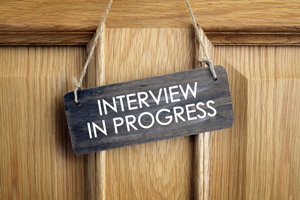5 steps on how to successfully interview at a Japanese company

You have been studying Japanese for a few years and are finally about to graduate. Now you want to start looking for a job, preferably at a Japanese company. However, you are not sure where to start. Does it matter where in Europe you work? Or should you be focusing on German cities such as Düsseldorf, Frankfurt or Munich? You have no idea where to begin and how to handle an interview at a Japanese company in Europe or Germany. If so, this article might have the answers you are looking for. I am about to graduate in Japanese studies and have been gathering information on how to find a job at a Japanese company in Düsseldorf for quite some time. I went to a couple of interviews and did a lot of research on how to behave and how to conduct myself during a job interview at a Japanese company in Europe. During this process, I found the help of a recruitment agency very reassuring. Their services are free for you and they will help you find the best fitting job. In the following article, I will explain to you what you should know and how to best prepare for an interview for a position at a Japanese company in Europe, particularly Germany and in my case Düsseldorf.
1. How to prepare yourself

First, try to gather as much information on the company as you can. If you want to work at a Japanese company, you should have done some research before applying and have found a company that suits your personality and enables you to do work that you are interested in. Most Japanese companies have offices all over the world, not only in Düsseldorf or in Europe, and you should know about their business activities and where they are located. If you are having trouble getting job interviews at a Japanese company in Düsseldorf in the first place or just cannot seem to find a job that fits you, I can only recommend registering at a recruitment agency. It is their job to bring employers and employees who suit each other together and they will give you important information about the company, which will save you a lot of trouble. On top of that, the registration will show you exclusive job offers that are not publicly accessible. Once you have received an invitation to a job interview, you should do even more research and especially figure out what it is that you like about the company and how to express your interest in it. Everyone likes to receive praise. And when you are asked, why you want to work for this company, it will make your potential employer happy to hear that you did not only do your proper research, but also really like the company and earnestly wish to work for them.
Secondly, you should know your self-introduction by heart. This will not only be helpful for an interview at a Japanese company but life in general. A short and precise self-introduction (under 3 minutes) in proper Japanese leaves a great first impression. Of course, you may have to vary it depending on the circumstances, but let us focus on a job interview at a Japanese company in Germany. You do not have to recite your whole life; they will have already read your CV. Just give a short summary of yourself and highlight skills and experiences that are relevant to the job. Let them know how it would be beneficial for the company to hire you.
Finally, exude confidence. I know, this is easier said than done, which is why building confidence should be part of your preparation. In order to have confidence, you have to be well prepared. You should know how to answer standard questions, such as what your strengths and weaknesses are, preferably in German, English and Japanese. This may seem like a lot of work at first, but once you have the perfect answers written down and know them by heart, you can use them for future interviews as well and just keep on improving. For this part of the preparation, it would again be helpful to work together with a recruitment agency. They will be able to tell you exactly which languages are necessary for the interview and on what to focus. If the job interview will be held mainly in Japanese and perhaps only a few sentences in English are going to be necessary, they will tell you so. In addition, if you have any question about the specifics of the job or are not sure which of your strengths to emphasize, your recruitment agent will gladly give you some pieces of advice.
2. What to wear
If you are applying for a job at a car repair shop, it may be okay to appear in Jeans and a T-shirt. However, we are talking about a white-collar job at a Japanese company. Especially if you want to work for a company that is located in big cities such as Düsseldorf, Paris or London, you should appear professional. For a Japanese company in particular, you should keep it conservative and clean. Do not dress up too much and keep it simple. Men should simply wear a black suit with matching shoes, a white shirt and a black tie. Do not use too much gel on your hair, just shave properly and keep your nails clean. For the women it is not too complicated either. Do not wear flashy clothes and pumps. A black skirt that goes to your knees, a matching blazer, and a white blouse beneath should do. Do not wear shoes with too high heels (no higher than 5 cm) or too many accessories. You may think this sounds a little too strict, but for your first interview I strongly recommend a basic and clean outfit. Once you have the job and see that your colleagues are wearing something more colorful, you can change your style too. Nevertheless, especially for the first impression, better be safe than sorry. The first impression is very important. Here the help of a recruitment agent would be very useful again, since they know the company you are interviewing for and what they expect. So they can tell you how strict this particular company is and what would be best to wear.
3. Arrival and greetings

It is common sense to be on time for any meeting. Nevertheless, especially for an interview at a Japanese company you should check out the route and plan in time for possible delays. This depends on where you live or in what city you are applying for a job. In Düsseldorf, traffic can be quite bad and I know from personal experience that you should not be overly reliant on trains in Germany. You should also not arrive too early, waiting for half an hour in front of the company’s building will only make you nervous, and appearing this early to your interview makes it seem like you do not respect the company’s schedule. I would advise to arrive near the location 10 minutes before the interview and announce yourself 5 minutes before. It is difficult to get the perfect timing, but if you have the choice between getting there barely 5 minutes before the interview starts or 20 minutes earlier, take the latter.
Once you have arrived, you greet everyone with a smile and go up to the receptionist to let him or her know that you are here for your job interview. If they do not escort you to the interview room and just tell you where to go, do not just barge in. Knock on the door three times and say 失礼します(shitsurei shimasu, please excuse the intrusion). After you hear the interviewer say どうぞ (dōzo, please come in) you may enter the room, close the door, face everybody at the table and say 失礼します again. Take a bow (women place their hands together in front of them, men place them at their sides) and walk to your chair. Do not sit down yet, stand next to it and introduce yourself: OOと申します。どうぞよろしくお願いします (OO to mōshimasu. Dōzo yoroshiku onegaishimasu. My name is OO, it is a pleasure to meet you) is the standard phrase that you should definitely know. They will tell you to have a seat and then you may sit. Be careful not to slump down in your chair, sit up straight and put your hands flat on your legs. Maintain that position during the whole interview, you can take some notes, but do not forget to pay attention to your interviewer and keep eye contact.
I would like to mention again, that the support of a recruitment agency is very helpful. They can assess your language skills and introduce you to a suitable company accordingly. If you are not confident in your current Japanese skills, they will not introduce you to a company looking for Japanese speakers of the highest level. They will also tell you if it is okay for you to introduce yourself in German or English.
4. The language

If you want to work for a Japanese company or just a job that requires Japanese language skills, be it in Europe, America or Japan, you should at least know some basic business Japanese (敬語, keigo). You should know not to refer to yourself as 俺 (ore, the male term for “me” sounds too rough or arrogant) or あたし (atashi, the female term for “me” sounds too informal) and show proper respect to your future colleagues and supervisor. Especially in case you are going to work with Japanese customers, you should start to study business Japanese. In case you want to work in Japan, a high level of Japanese skills is often necessary. However, the required level of Japanese language proficiency varies widely for jobs at Japanese companies in Europe and Germany depending on what kind of work you are looking for. If you are not sure, what kind of level is necessary or if your Japanese is sufficient for the job, just ask your recruitment agent.
One of the most common questions that I can almost guarantee you will be asked is “How did you get interested in Japan and the Japanese language”. Since you are studying Japanese, I assume you have been asked that question yourself already a few times, but do you think your answer would also leave a good impression at a job interview? You should definitely prepare an appropriate and interesting answer. If you started studying Japanese because you like Anime and Manga, that is fine, but also add something that makes you stand out and in the best case relates to the job you are applying for.
I am not going to list the entirety of the most common interview questions right here, because that would go beyond the constraints of this article and there are already enough sites covering that topic. However, if those are too vague for you, your recruitment agent should be able to give you some useful hints.
5. How to end the interview

To summarize, you did thorough research on the company and job you are applying for and arrived for your job interview on time. Not only that, but you introduced yourself professionally and were well prepared for the interviewer’s questions. Now how to finish the interview and what to do once it is over?
To assure the interviewer that you are the right fit for the position you just have to end your job interview on a good note. The closing is a great time to emphasize your interest to work for them and remind them of how qualified you are for the position. You should prepare some questions beforehand during your research. On top of that, you should write down questions that you might think of during the interview. This shows that you really listened and are seriously thinking about this company and your future work. You should also thank them for the time they took out of their busy schedule to interview you and ask how they would like to proceed. You also usually should write a thank you E-Mail to follow up. If you are working together with a recruitment agency, they will take care of that for you. They get feedback from you and the company after the interview and discuss next steps. Therefore, you will not have to worry about what to write in the thank-you e-mail or how to proceed.
Conclusion
If you are preparing for a job interview at a Japanese company in Europe or Germany, there are some peculiarities you have to consider. You should for example be careful about your outfit and the way you speak. But if you keep the advice from this article in mind, do your proper research and prepare accordingly, you should be just fine. I know it may seem kind of scary and stressful at first, but you just have to hang in there and do your best. I hope this article will be useful for your job hunt and that you have gained some new insight into the ways of Japanese companies in Europe.
About the author: Jen
Jen did her bachelor’s degree in Modern Japanese Studies and Sociology in Düsseldorf and went on to deepen her knowledge by entering the master’s course. Amongst other things she did an exchange year, business manners course and internship in Japan. Right now, she is working on her master’s thesis while interning at a Japanese company in Düsseldorf.
*After your registration, we will be able to present you with exclusive job offers matching your qualifications and expectations.


